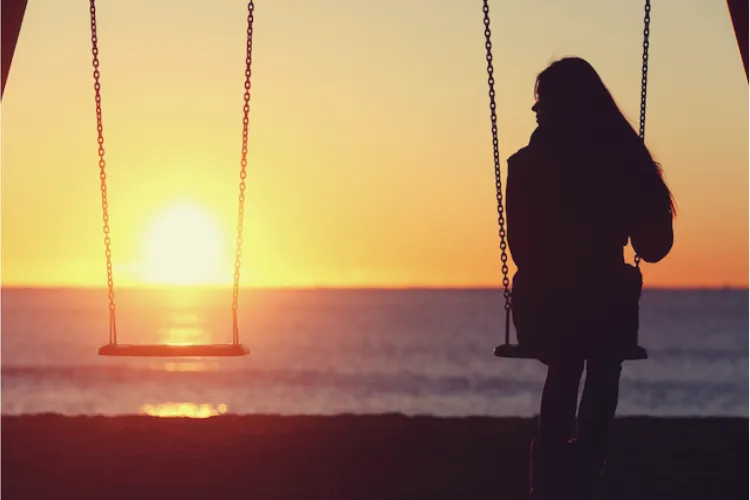Many people mistakenly believe that feeling lonely and being alone are the same thing. You are not accompanied by anyone else when you are alone. Whatever you do, you do it alone, and you can still be fulfilled and happy without being depressed. However, loneliness can be an entirely distinct emotion; you can experience loneliness even while you are with your close friends, lover, or family. And it may be caused by a variety of circumstances, including unrecognised childhood trauma, breakups, anxiety, fear of intimacy, poor parental bonding, and many others. ‘A sensation of pain brought on by a perceived lack of intimacy with others or ourselves is known as loneliness.’ People who are lonely experience empty, lonely, and unwelcome feelings. People who are lonely frequently want human interaction, yet their mental state makes forming relationships more challenging.
Now, what is Autophobia?
The fear of being isolated, lonely, or alone is known as Monophobia or Autophobia. This phobia isn’t necessarily based in reality. Even if you are aware of your physical safety, you might still be afraid of intrusions from strangers, being rejected, experiencing an emergency without help, or going through other unexpected experiences alone. According to experts, the agoraphobic cluster of mental health issues include monophobia. Agoraphobia is a severe aversion to being outside or in an unfamiliar environment. There are many levels of monophobia; some persons must have a specific partner with them, others must have another person in the same room with them, and still others must have another person present in the house. Autophobics think they need other people around them to feel safe. It is serious to have a true phobia (as opposed to just a few symptoms occasionally). You might struggle to maintain healthy relationships and have poor life function as a result. It involves more than just having a concern.
Wellness experts at Ganeshaspeaks.com can help you with not just your phobias but any kind of wellness issues. Download the app now.
How can I determine whether a person has Autophobia?
One-of-a-kind psychological and physical symptoms that Autophobic people may face include:
- Trouble breathing, fast heartbeat, and chest tightness when alone.
- Even amid a vast, pleasant crowd, feeling alone or unnoticed.
- Ensuring kids are never left alone by taking necessary precautions.
- Experiencing excessively strong anxiety about the circumstances.
- You experience anxiety when you consider being alone.
- When alone, experiencing nausea, dizziness, or fainting.
- Believing that if one is alone, disaster will ensue.
- Having anxiety attacks when contemplating or remaining alone.
Why do I fear about being alone myself?
Most phobias begin in childhood. Some people can link a painful or unfavourable experience to their fear of being alone. It may also occur if you have been abandoned by your parents or a romantic partner. Your body responds in a particular way to loneliness based on your prior experiences in order to prevent future suffering or discomfort.
Possible causes of Autophobia include:
- Feeling abandoned, neglected, or disregarded.
- Divorce or the death of a parent while still a child.
- Separating from a loved one in a crowded place or another public place.
- Having a panic attack, getting hurt, or encountering another emergency without assistance, such as a house invasion or mugging.
- Experiencing a difficult event alone without help.
How do I diagnose the Autophobia?
The Diagnostic and Statistical Manual of Mental Disorders published by the American Psychiatric Association does not list Autophobia (monophobia) as a phobia (DSM). However, a psychologist or other mental health expert can identify phobias based on their symptoms.
There are several requirements for diagnosing a particular phobia:
- Continuous anxiety for at least six months.
- Intense worry or fear being alone, yet being aware that you’re not in danger.
- Symptoms start right away when you find yourself alone or imagine being alone.
- A fear or anxiety that makes you avoid being by yourself.
- Extreme symptoms that make it difficult for you to function and live a happy life.
How to address Autophobia?
Most people who use exposure treatment are effective in getting over their particular phobias. Cognitive behavioural therapy may also be used by your healthcare provider (CBT).
These two talk therapy (psychotherapy) techniques concentrate on:
- Use relaxation methods to manage your symptoms, such as meditation and deep breathing exercises.
- Determining the source of the anxiety.
- Finding techniques to combat self-limiting beliefs about being alone will help you progressively come to the realisation that being alone is neither terrifying nor hazardous.
- Adjusting gradually to being by oneself. You might begin by setting a daily goal of 15 minutes of alone. Then, as the weeks pass, you might extend that period of time.
As you attempt to conquer your fear of being alone, anti-anxiety medications or blood pressure medications like beta-blockers may provide temporary assistance. After the treatment is over, you might not need medication.
Please be aware that there is support available if you think you may be suffering from Autophobia. Through appropriate care and self-dedication to the healing process, many individuals discover they are able to significantly lessen or totally eliminate their symptoms. Even if your symptoms don’t entirely go away with consistent treatment, you may rest easy knowing that they’ll probably be greatly diminished. There is care available if Autophobia is affecting your life or the life of someone you care about. Making the decision to start looking for it is the next step in beginning to conquer your phobia.
Whether you are struggling with a specific phobia or any other mental wellness issue, speak to our counselors or psychologists at Ganeshaspeaks.com. Download the app now.



